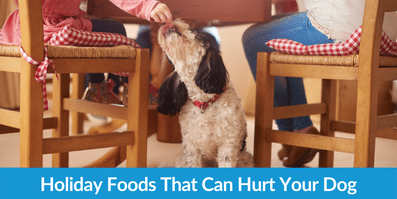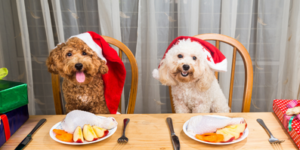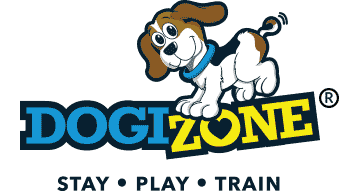Holiday Foods That Can Hurt Your Dog
During the holiday season, special meals and foods are always a part of family traditions. While there are a lot of great foods that make a nice treat for your dog, there are also some very traditional foods that have the potential to be deadly.

The size of the dog, the amount of food consumed, and even the dog’s current health status all have an impact on the potential effects of consuming any of these foods. The best-case scenario is the dog has a bit of digestive upset. With a significant reaction, an emergency call to the vet is required to address any potential symptoms of serious complications.
What to Avoid
The following are holiday foods that you should never feed your dog.
- Turkey bones, skin, or fat – Cooked poultry bones are problematic as they splinter, creating the risk of punctures to the dog’s digestive system. Skin and fat from turkeys can trigger pancreatitis, which can be fatal if not treated immediately. If the dog eats fat or skin from the bird and begins vomiting, diarrhea, anxiety, and a fever, call an emergency vet immediately.
- Chocolate and caffeine – Chocolate and caffeine of any kind are potentially toxic to pets. The signs can occur up to 12 hours after eating the chocolate or caffeine. Symptoms include vomiting and diarrhea, as well as increased urination and water consumption. Tremors, seizures, collapse, and elevated heart rate are signs of a life-threatening reaction and require immediate vet attention.
- Nuts – Most people have dishes of nuts on the table over the holidays. Unfortunately, nuts contain a lot of fat, which can trigger pancreatitis in some dogs. Even with a small number of nuts consumed, most dogs will have vomiting and diarrhea.
- Alcohol – Eggnog and other holiday beverages often have alcohol mixed with juice or a cream base, which is very attractive to pets. Even a small amount of alcohol typically leads to vomiting in dogs, but they can also experience liver and brain damage if they consume a large amount relative to their size.
- Garlic and onions – food that includes garlic, onions, and chives, will result in a digestive upset in dogs.
- Yeast dough – Dough is particularly problematic as it can swell in the digestive tract, causing blockages that can be life-threatening. Call the vet immediately if your dog seems to be experiencing any signs of discomfort, bloating, retching, or restlessness after consuming raw yeast dough.
- Xylitol- This ingredient is often found in baked goods as a sugar substitute. It is highly toxic for your pet and should be avoided. Be sure to check those baked good labels as well as sugar-free peanut butter. In addition to baked goods, you may find xylitol in sugar-free gum (check those stockings from Santa) and also a lot of oral-care products contain this ingredient.
If you realize your dog has consumed any of these foods, try to estimate how much they ingested. Then, call an emergency vet for instructions on how to manage the dog either by monitoring their behavior or bringing the dog in for treatment. The sooner the dog is seen by the vet, the more options the vet may have to treat the problem.
Healthy Treats for Holiday Pooches

Here are some holiday treats your dog will love:
- Small pieces of cooked white turkey meat – no skin or fat attached
- Apples – most dogs love the sweet taste of apples
- Broccoli, carrots, and cauliflower – either raw or steamed
- Pumpkin puree – either canned or homemade, free from sugar
- Cooked, skinless sweet potatoes – never feed raw sweet potatoes, but a small amount of cooked sweet potatoes are a great addition as a healthy holiday treat
When in doubt, check online before feeding your dog any human foods. Use information from a reputable site such as the American Kennel Club, the ASPCA, the Humane Society, or a vet.

